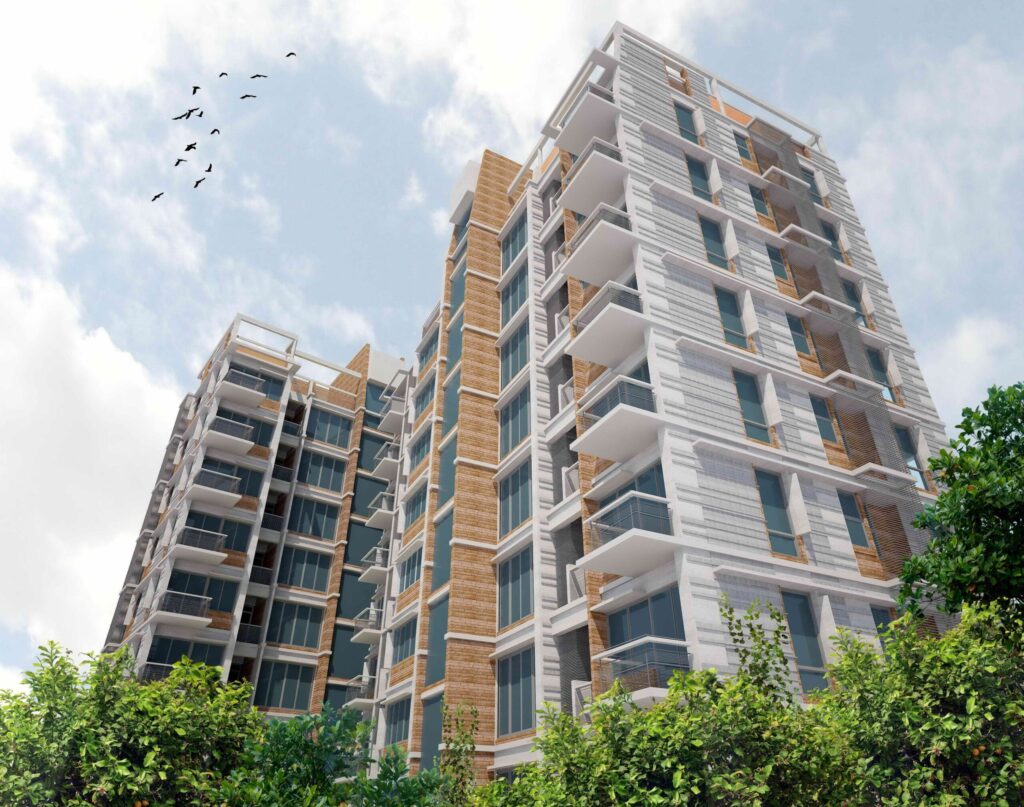Real estate development is more than just constructing buildings; it’s about creating spaces where people live, work, and thrive. From residential complexes and commercial centers to community infrastructure, real estate development shapes the fabric of our cities and directly impacts our daily lives. In this blog, we’ll take a closer look at what real estate development involves, the different stages in the development process, and its significance in modern society.

What is Real Estate Development?
Real estate development is the process of improving land or existing properties to increase their value and usefulness. It involves various steps, including market research, land acquisition, planning, financing, construction, and property management. Developers can work on various types of projects, from residential and commercial buildings to industrial parks and mixed-use developments. The goal is to create functional, profitable, and sustainable spaces that meet the needs of individuals and businesse
The Importance of Real Estate Development
Real estate development plays a critical role in economic growth, urban planning, and community development. Here are a few ways it impacts society:
- Economic Growth: Real estate projects create jobs, attract investment, and stimulate local businesses, boosting the economy.
- Urban Expansion and Improvement: Developers play a vital role in shaping city landscapes by creating residential neighborhoods, office districts, and mixed-use areas that meet the needs of urban populations.
- Sustainable Living: Modern developers are increasingly focused on eco-friendly and sustainable practices, such as green building materials and energy-efficient designs, contributing to a healthier planet.
- Enhanced Quality of Life: Real estate development brings new amenities like parks, shopping centers, and healthcare facilities, enriching communities and making life more convenient.

Market Research & Feasibility Analysis
- Before starting any project, developers conduct extensive market research to assess the demand and identify trends. This stage involves analyzing local demographics, economic conditions, and competition to determine the type of development that would be most beneficial and profitable.
- Feasibility studies are then conducted to estimate costs, expected revenues, and potential risks. This research helps developers make informed decisions and choose the right projects.
Land Acquisition
- Once the market research confirms the project’s potential, the next step is acquiring the land. Land acquisition is one of the most critical stages in real estate development and can involve negotiating with landowners, understanding zoning laws, and ensuring the land’s suitability for the intended use.
- Developers must also work with local authorities to obtain any necessary permits and approvals, such as zoning and environmental clearances.
Planning & Design
- The planning stage involves working with architects, engineers, and designers to create detailed plans for the project. This includes site plans, building layouts, landscaping, and interior designs.
- At this stage, developers consider the aesthetics, functionality, and environmental impact of the project. Sustainable design has become increasingly important, with more developers opting for eco-friendly materials, energy-efficient systems, and green building certifications.
Financing
- Real estate development requires significant capital, and developers often seek financing from banks, investors, or private equity firms. Developers prepare financial projections and business plans to attract funding and ensure that the project will be profitable.
- This stage also includes budgeting for all costs, from land acquisition and construction to marketing and sales. Proper financing and budgeting are essential to ensure the project remains on track and within budget.
Construction
- Once financing and permits are in place, the construction phase begins. This stage involves hiring contractors, managing the construction process, and ensuring that the project adheres to quality standards and deadlines.
- Construction is often the most time-consuming stage, requiring regular site visits, quality checks, and coordination with contractors and suppliers. Developers also ensure that safety regulations are met and that the project stays on schedule.
Marketing & Sales
- As the construction phase progresses, marketing efforts kick in. This stage involves promoting the property to potential buyers, tenants, or investors. Developers work with real estate agents, marketers, and sales teams to create a strong branding and marketing strategy.
- Developers use a mix of digital marketing, advertising, and community outreach to generate interest and attract clients. For residential developments, open houses and virtual tours have become popular ways to showcase properties.
Challenges
Real estate development is a rewarding field, but it comes with its own set of challenges:
- Regulatory Hurdles: Zoning laws, building codes, and environmental regulations can delay projects or add unexpected costs.
- Financial Risks: Real estate development requires substantial investment, and market fluctuations can affect profitability.
- Community Opposition: Sometimes, development projects face resistance from local residents concerned about environmental or cultural impacts.
- Construction Challenges: Managing construction timelines and budgets can be challenging, especially when dealing with large, complex projects.
Future
With urban populations increasing and technology advancing, the real estate industry will continue to innovate and adapt. Sustainable and mixed-use developments are likely to become more popular, as cities look for ways to accommodate growth while preserving resources. In the future, we can expect more emphasis on community-centric and environmentally-friendly projects, transforming the way we live, work, and interact with our surroundings.
Conclusion
Real estate development is a dynamic field that influences not only the economy but also the way we live, work, and interact with our surroundings. From creating jobs and boosting economic growth to improving urban infrastructure and housing solutions, developers have a profound impact on our lives. As technology and sustainability continue to drive the industry forward, we can look forward to more innovative, efficient, and eco-friendly real estate developments that meet the needs of modern society.
Whether you’re interested in investing, purchasing a property, or just learning about the industry, understanding real estate development is key to making informed decisions.

